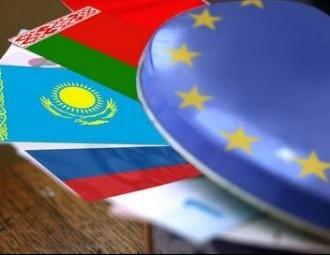Andrei Yahorau: The developing Eurasian Economic Community has no future

Political scientists referred to the contradictions that exist between the EurAsEC actors as to “unavoidable and insurmountable difficulties”.
That is why the developing Eurasian Economic Community has no future: the participants of the integration project will either have to waive some of their sovereignty or to contract a “fictitious marriage”.
Such an opinion in the interview with the EuroBelarus Information Service shared Andrei Yahorau, the director of the Centre for European Transformation.
- On October 24 the meeting of the Supreme Council of the EurAsEC opened in Minsk. The topic high on the agenda is the integration and the work on the project of Eurasian Economic Community Agreement. What are the expectations from the Summit?
- There is nothing new to expect from the summit. One more time the loyalty to the plans and EU ideals will be confirmed. No essential changes, which would touch upon the EurAsEC structure, its goals and aims, are to be expected.
- If we consider Lukashenka’s stand, he is against single currency within the Customs Union and against the formation of supranational structures. How serious are the contradictions between the EurAsEC players?
- I would call these contradictions unavoidable and insurmountable. Russia is increasingly trying to spread its power to the EurAsEC territories. If some part of political or economic functions are delegated to supranational structures, it will result in either partial or total loss of sovereignty. That is the reason why Belarus and Kazakhstan will make their utmost to prevent the formation of supranational structures.
By cooperation within the frames of EurAsEC and Customs Union Kazakhstan and Belarus imply that Russia will back the economies of these countries and develop trade. If ideological part of the above mentioned integration projects is pushed to the sidelines, then economic cooperation and trade still can develop. However, Russia won’t drop the ideological basic, which is actually the basis for all integration projects.
- Which means they are unlivable?
- Eurasian Economic Community has no future. The question is how the participants of this project will get out of this situation? All the previous integration projects (“Union State” and EurAsEC) suffered the same fate, which means that either Eurasian Economic Community will have to reconsider its own guidelines or the ideological basis of the project will have to be dropped; and it is absolutely unacceptable for Russia. The formation of Eurasian Economic Community will finally result in fictitious demonstration of unity.
- Economic integration within the Customs Union (CU), which provides Belarus with preferences from Russia without advancing political claims, is more profitable for Lukashenka, believes the head of the Russian Information and Analytical Centre for studies of Post-Soviet area. Is it the main reason why Lukashenka has abandoned European integration to Eurasian?
- Obviously, it is. Lukashenka is interested in backing Belarusan economy and in support of Belarusan social model. However, Lukashenka won’t give up his his political interests in this situation under any circumstances.
Europe openly states its political claims to Lukashenka. Russia also has political claims, which is a “secret protocol” to the Customs Union and Eurasian Economic Community. And even if Russia doesn’t voice its demands, they are an open secret. That is the reason of this “tag of war”.
Lukashenka doesn’t accept any political claims, whether they come from the European Union or from Russia.
-
03.01
-
07.10
-
22.09
-
17.08
-
12.08
-
30.09








































